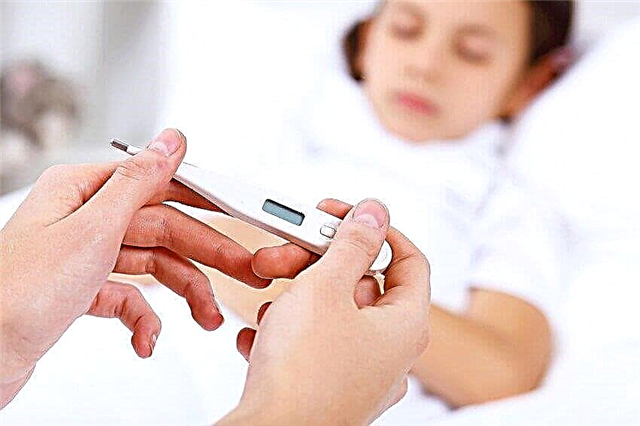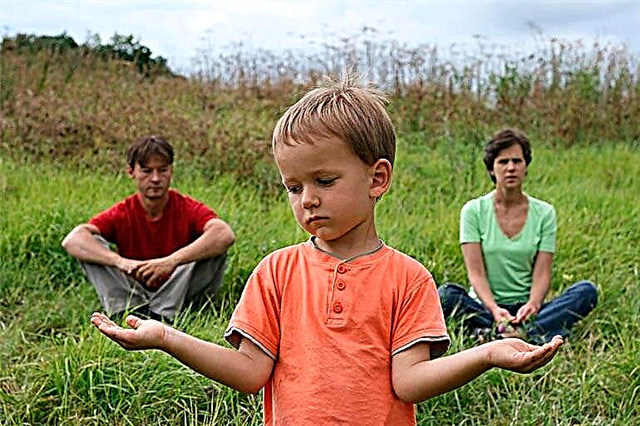
Vaccination against influenza does not give a 100% guarantee that the child will not get sick, but it guarantees an easier course of the viral disease - without complications. Various vaccines are used to create specific immunity to the influenza virus of different strains.
In this article we will talk about "Grippol Plus", which is widely used for vaccinations for children.


About the vaccine
"Grippol Plus" appeared in 2006 and immediately received popular recognition, it was included in the National Calendar of Preventive Vaccinations. This drug has been approved for use in children since 2009.
Since 2014, the vaccine has been recognized as safe for pregnant women, and since that time it has been used for preventive vaccination among expectant mothers.
The drug is available in the form of a suspension for intramuscular and subcutaneous administration.
The vaccine with the word “plus” in the name differs from "Grippol" in the absence of preservatives, due to which it is recognized as safe for use in children and immunoprophylaxis of pregnant women.


The vaccine is inactivated, its composition changes from year to year in connection with the current clinical guidelines of the World Health Organization. The fact is that influenza viruses quickly and often mutate, and a vaccine that was relevant in the past epidemic season may be ineffective in the current one. This is the reason for the need to make adjustments to the composition.
It always contains hemagglutin antigens of influenza viruses type A and B. The rest of the components may vary.


Already 8-12 days after the administration of the vaccine, a rather high titer of antibodies is found in the patient's blood. Studies have identified it in about 85-95% of those vaccinated. Immunity is enough for about a year, that is, until the next epidemiological season.
The vaccine contains azoximer bromide - an immunomodulator that helps to ensure the stability of antibodies. This is what ultimately affects the formation of long-term and persistent immunity to influenza viruses.
Produced in Russia... It is transported under strict temperature conditions.

Application features
After receiving a dose of the vaccine, the body needs time to create an immune barrier and develop protection, and therefore it is recommended to start vaccination with this drug before viruses go into the attack, that is, in September - early October. In some regions, where the cold snap begins earlier, the vaccination campaign starts in August.
The vaccine can be given to all children from the age of six months.

The smallest category of patients (from 6 months to 3 years) the vaccination is done in the children's clinic at the place of residence. It is completely free... After the introduction of the first part of the vaccine in the amount of 0.25 ml, another dose of the same is administered a month later.
Children over 3 years of age receive a single flu shot. This happens with the consent of the parents in kindergarten, at school. A single dose, according to the instructions for use, for such children differs from the dose for infants - 0.5 ml.
If the child suffers from immunodeficiency states, he, regardless of the calendar age, is vaccinated according to the scheme of infants - two injections of 0.25 ml each.
If the child is already big - of school age, and before he has never been vaccinated against influenza, then double vaccination in the age dose is indicated for him. The second vaccination must be given exactly one month after the first.
Pregnant women can be given the vaccine at any time, but the second and third trimesters are considered the safest.
Adults, especially those at risk, receive "Grippol Plus" once. This group includes workers in medical institutions, teachers, public transport workers, conscripts and military personnel, workers in the housing and communal sector, and the elderly.


Contraindications and side effects
Since the vaccine is purified and free of preservatives, its use is practically unlimited.
But you should know that vaccination even with this safe remedy is not carried out if the child has signs:
- an acute respiratory viral infection that has already begun - runny nose, cough, fever;
- exacerbation of any chronic disease (children with kidney pathologies are vaccinated, but during an exacerbation the vaccine is contraindicated, the same rule applies to all diseases;
- allergies to chicken protein (the vaccine is obtained by infecting the cells of chicken embryos with viral particles).

Usually, parents, frightened by stories from anti-vaccine supporters, are wary of getting the flu shot for fear of side effects. As for "Grippol plus", such effects of this vaccine, according to clinical trials and pediatric practice, usually mild or not expressed at all... These include the appearance of a runny nose, general malaise, some tenderness and an unpleasant induration at the injection site. The child may have a slight rise in temperature (above 37.0 degrees). Very rarely, the vaccine causes allergies or causes the development of neuralgic lesions.
There is no need to worry about mild side effects. Without any treatment, medication, the symptoms disappear on their own within 1-2 days after vaccination.
If the child is feeling very unwell, has a high fever, rash, nausea or other signs of trouble, a doctor should be called.


Preparing for vaccination
No special preparation is required from an adult who is about to get a flu shot. Came on the appointed day and made a small injection. But when it comes to childhood vaccination, everything is different. Preparation is highly recommended by pediatricians.
So, how to prepare your baby for a flu shot:
- For 3 days, stop introducing all new foods into the diet so as not to provoke an allergic reaction. Among the usual products for the same three days, it is better to give up fish, fish oil, seafood.
- If a child takes a water-soluble vitamin D or a multivitamin complex that contains this substance, they should stop taking them for 4 days.
- If the child is prone to allergies, give an antihistamine at an age-specific dosage a couple of hours before the vaccination. Better - "Claritin" or "Fenistil".
- Do not overfeed your child on the eve of the shot so that he can travel light to the treatment room.


On the morning of the day of vaccination, you need to measure the child's temperature, look into his throat, assess the condition of the uvula, make sure that the stomach does not hurt, there is no cough, and the nose breathes on its own. If the temperature is above 37.0 degrees, the vaccination will have to be postponed... At this temperature, the healthcare professional who will also measure it before the injection will simply refuse to administer the vaccine.

What to do after?
After a couple of terrible (from the point of view of the baby) minutes are left behind, do not rush to immediately drag the child home. Sit with him in the corridor away from the queue of patients (so as not to catch viruses), walk along the street near the porch of the clinic. It is not worth going further, because a lightning-fast allergic reaction is possible. This happens very rarely, but if it happens, it is not always possible to deliver a child from home to the hospital even in an ambulance with flashing lights. You will need quick help on the spot, and it can be provided in the clinic.
The first signs of a lightning-fast reaction system are:
- blanching;
- perspiration and sweating;
- restless child behavior;
- shortness of breath;
- swelling of the lips, nose.
In this case, you urgently need to grab the child and fly out of line to any doctor's office.

For most, nothing of the kind happens, so in half an hour the child goes home. Can I swim after vaccination? If there is no elevated temperature, then you can. Is it allowed to walk? It is allowed, but again, provided that the child does not have a high temperature (above 38.0 degrees).
It is not necessary to feed your baby very satisfyingly and densely after he has received a flu shot.... For a couple of days, a lighter diet, rich in vitamins, but not fatty, is desirable. Immunity will actively work, it just needs a little help.

The opinion of Dr. Komarovsky
The authoritative pediatrician Yevgeny Komarovsky is sure that there are many more children in the world who have suffered from the flu virus than children who have suffered from this vaccination. He strongly recommends this vaccination.
Even if a child gets sick after being vaccinated, he will have the flu like a regular ARVI, and the likelihood of dangerous complications - meningitis, meningoencephalitis, myocarditis will be significantly lower, practically reduced to zero. Influenza is not dangerous in itself, but precisely because of its complications, and the flu vaccine solves this problem perfectly.

Analogs
There are other flu vaccines available. In Russia, apart from "Grippol" and "Grippola plus", vaccines "Sovigripp", "Vaxigripp", "Ultrix", "Influvac", "Grippovac" are widespread.
The need to choose an analogue may arise if the child has a history of allergic reaction to Grippol Plus. In this case, another vaccine will be selected.
Reviews of patients and doctors
Reviews of "Grippol Plus", like other influenza vaccines, are ambiguous. Among them there are many positive ones, in which mothers indicate that vaccination did not cause any such actions, and the child did not get the flu for a year. There are mothers who are convinced that vaccinations are evil, and not only for the flu, but for everything else too.
Among the side effects of mothers describe the signs of a "cold": runny nose, slight coughing, fever. But in most cases, even antipyretic drugs were not needed, everything went pretty quickly by itself.
The doctors' reviews are almost always positive.

Famous children's doctor and TV presenter Yevgeny Komarovsky tells parents about influenza vaccinations in this video.



